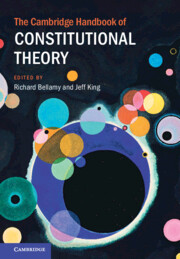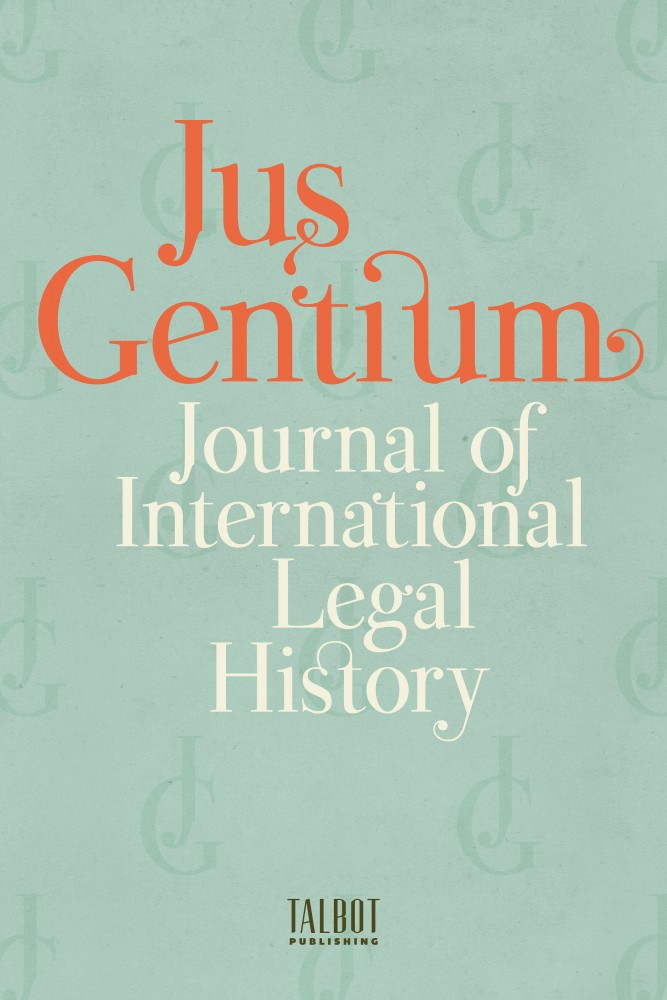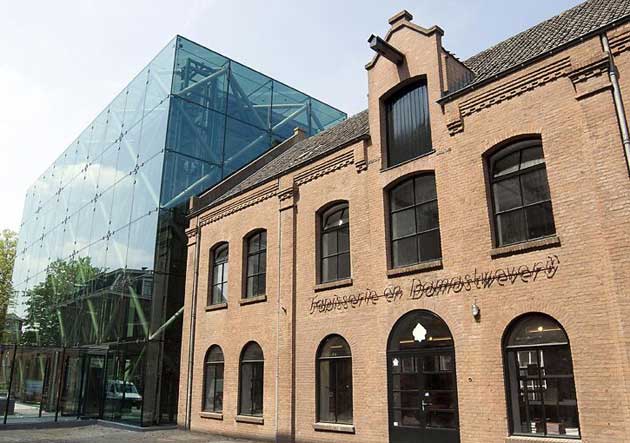Journées internationales d'histoire du droit et des
institutions
Textiel MUSEUM, Goirkestraat
96,
Tilburg, le 30 e 31 mai 2025
«
L’Extraterritorialité et le Droit »
Journées internationales d'histoire du droit et des
institutions
TextielMUSEUM, Goirkestraat
96,
Tilburg, les 30 et 31 mai 2025
«
L’Extraterritorialité et le Droit »
Programme du vendredi 30 mai
2025
9:30 Accueil des
participants
10:00 Michael Milo (Universiteit Utrecht, Vice-Président
de la Société d'histoire du droit et des institutions des pays flamands,
picards et wallons) et Emanuel van Dongen (Universiteit Utrecht): Accueil
et Introduction aux journées internationales d'histoire du droit et des
institutions
10.05-11:30 (présidence
des sessions à déterminer)
Willem
Theus (Katholieke Universiteit Leuven) Extra-jurisdictionality and Extraterritoriality
Ilya
Kotlyar (University of Francisco Vittoria, Espagne) Late Medieval Doctrine of
Hypothec: A Case of Exterritorial and Extratextual Exchange of Ideas?
Marco
in 't Veld & Marijn Manders (Tilburg University) Territory and the
Enforcement of Dordrecht’s Staple Rights (15-16th Century)
Victor
Le Breton-Blon (Université Bretagne Sud) Governing trade in an
extraterritorial ecosystem. Bills of exchange, financial law, fairs and
transnational networks: the case of Simon Ruiz (late 16th century Europe)
Florian Laussucq (Université de
Bordeaux) L'extraterritorialité
du droit européen au Qatar: entre structuration d'un droit local et instrument
d'interprétation.
11:30-11:45
Discussion et Café
11:45-13:00
(présidence des sessions à déterminer)
Florian
Herrendorf (Tilburg University) Osterlins and the City: Rouen and the Baltic Trade in
the Sixteenth Century
Nadège Zenoud (Université Jean
Moulin Lyon 3) La
construction dans l’Europe médiévale d’un droit commercial à l’encontre de
l’extraterritorialité des droits étatiques
François Pierrard
(Université catholique de Louvain) De l’humanisme juridique au siècle des
Lumières : la transition du ius commune au droit commun des états modérés
en passant par les droits nationaux. Le cas des Pays-Bas autrichiens.
Christian
Pfister-Langanay (Université du Littoral Côte d'Opale) Exterritorialité,
arbitrages et conflictualités: Dunkerque et le traité de libre-échange de 1786
Ambre Jarassier (Université
de Nantes) L’Algérie sous le second Empire, une libéralisation progressive du
département par sénatus-consultes.
13:00-14.00 Déjeuner – Lunch -
Noenmaal
14:00-15:15 (présidence des
sessions à déterminer)
Tatiana Ndjobo (Universite de Douala, Cameroun)
De
l’extraterritorialité coloniale à la souveraineté juridique : trajectoires
croisées du droit français au Cameroun et au Sénégal
Elodie Duhamel (Université Paris 1
Panthéon-Sorbonne) L’implantation
ineffective de la « propriété » par la procédure d’immatriculation foncière
coloniale en Afrique Occidentale Française
Maaike
Voorhoeve (Universiteit van Amsterdam) Kolonialisme,
recht en gender in La Régence de Tunis (1881-1956)
Paul-Emanuel Babin
(Université de Lille) La contribution de la doctrine anticolonialiste
minoritaire contre l’extraterritorialité en Algérie. Les discussions juridiques
autour du rapport du politiste Lucien Pary (février 1962) sur les bases
militaires en Afrique.
Bastiaan van der
Velden (Open universiteit) Slavery
in the Dutch Republic – Normative Diversity between the Territories of Holland
and Zeeland
15:15-15:30 Discussion
15:30-16:45
(présidence des sessions à déterminer)
Gaëlle Compper (Université
des Antilles) Rendre la justice dans les
E.P.C1 en Guyane (19e – 20e siècles). Un cas d’hybridation normative
et juridictionnelle
Xavier François-Leclanché (Société
pour l'histoire du droit et des institutions des anciens pays bourguignons,
comtois et romands) Les
mainmises des puissances alliées sur l'administration française en 1814 et 1815
Caroline Duret (Université de Genève, Suisse) `Régime juridique
des terres agricoles (agri vectigales) cédées aux colons par l'État romain (Ier
siècle av. J.-C. – IIe siècle ap. J.-C): réflexions sur la notion de cession
d’un droit réel
Hugo Neuhauser (Université de Lille) Les traités de travail et l’applicabilité du
droit des assurances sociales à l’étranger (1904-1914)
Dave De ruysscher (Universiteit
Tilburg & Vrije Universiteit Brussel) Mirroring the monarch: the extraterritorial
sovereignty of cities of trade (15th-16th centuries)
16:45
-17:00 Discussion
19h00 Dîner
de la Société au restaurant Kok Verhoeven,-
NS Plein 32, Tilburg – pour les personnes
préalablement inscrites
Programme du samedi
31 mai 2025
9:00 Accueil des participants
9:15-10.30 (présidence des sessions à
déterminer)
Léna Sylvestre (Vrije Universiteit Brussel) UN Translators as Actors of UN-based Normativity
Milcar Jeff Dorce
(Université de Bordeaux) L’extraterritorialité
contre-hégémonique
Bruno Debaenst (Uppsala Universitet, Suède) Veni, vici, annexi. Un regard historico-juridique sur l'assimilation de
la Flandre française dans et par la France
Alexandra Garifullina (Université de Lille) L’apport des juristes soviétiques à la construction du droit de
l’espace extra-atmosphérique (années 1930-1960)
David Magalhães (University of Coimbra, Portugal) Ius proprium-Ius Commune, a dichotomy that built
Portuguese Private Law
Xavier Gervasoni (l’Université
de Saint-Quentin en Yvelines) Un bagne d’Outre-Mer méconnu : le pénitencier
d’Obock (1885-1895)
10:30-10.45 Café
10:45-12.15 (présidence des sessions à
déterminer)
Dan Constantin Mata
(Université «Alexandru Ioan Cuza» de Iasi, Roumanie) Le droit interprovincial et le problème de
l'unification législative dans la Roumanie de l'entre-deux-guerres 20e eeuw
João Paulo Ramos
Jacob (University of São Paulo, Brésil) Electoral Justice in Brazil:
A History of Institutional Discontinuities in a Contested Democratic Order
Stefanos Gakis (Le Mans Université) Les locaux diplomatiques
entre territorialité et extraterritorialité
Sanae Bouyayachen (Université Mohammed V,
Maroc) La mise en œuvre
extraterritoriale de la responsabilité des entreprises transnationales en
matière de droits humains : axe de pivotement du tournant vers la
« transition durable » en droit international des
investissements ?
Wilfried Meidom (Toulouse) Jusqu’où l’extraterritorialité a-t-elle envahi
le droit fiscal?
Daria Astakhova (Avocate au barreau de Paris) La recherche des règles de procédure harmonisées pour les litiges internationaux
12 :15
Assemblée générale de la Société
Tanguy Le
Marc’Hadour (Président de la Société), Conclusions et clôture des Journées internationales d'histoire du droit et des
institutions
12:30-13:30 Dejeuner-Lunch-Noenmaal
13:30
– 15.00 Visite au Musée du Textile-Rondleiding (pour les personnes préalablement inscrites)
|
|
Société d'histoire
du droit et des institutions des pays flamands, picards et wallons
|
|
Journées internationales d'histoire du droit et des
institutions
TILBURG, 30 – 31 mai 2025, MUSEE DU TEXTILE
FORMULAIRE D'INSCRIPTION / REGISTRATION FORM
À
envoyer avant le 14 mai 2024 par
courriel à : e.g.d.vandongen@uu.nl et j.m.milo@uu.nl
To be sent before
May 14st, 2024 by e-mail at : e.g.d.vandongen@uu.nl et j.m.milo@uu.nl
Mme/M/M
Adresse/Address
Portable/Phone:
E-mail :
1° Droit d’inscription congrès
/ Registration fee Congress : ..…. x 50 €
Total : ... €
2° Lunch vendredi / Lunch Friday 30-05-2025 (Musee du Textile)
Nombre de
personnes / Number of persons : …… x 15
€ Total : … €
3° Lunch samedi / Lunch Saturday 31-05-2025 (Musee du Textile)
Nombre de personnes / Number of persons :
…… x 15 € Total : … €
4° Dîner vendredi soir / Dinner Friday evening
(restaurant KokVerhoeven)
Nombre de
personnes / Number of persons : ……x 80 € Total : … €
5° Total à payer / Total amount to be paid:
…. €
6° Visites / Guided tours :
le samedi/Saturday 31
mai:
Musee du Textile
Participera / Will
participate : OUI/YES
– NON/NO
Nombre de personnes / Number
of persons :
Payements au compte bancaire /
Payments on bank account :
IBAN
NL 15 INGB 0002 1087 24
Au nom de / Account holder : SOC D-HISTOIRE DU DROIT ET DES INSTITUTIONS
Attention
: Toute inscription donne lieu à l’obligation de paiement des frais
Be aware that registration
leads to the obligation to pay the foreseen cost





